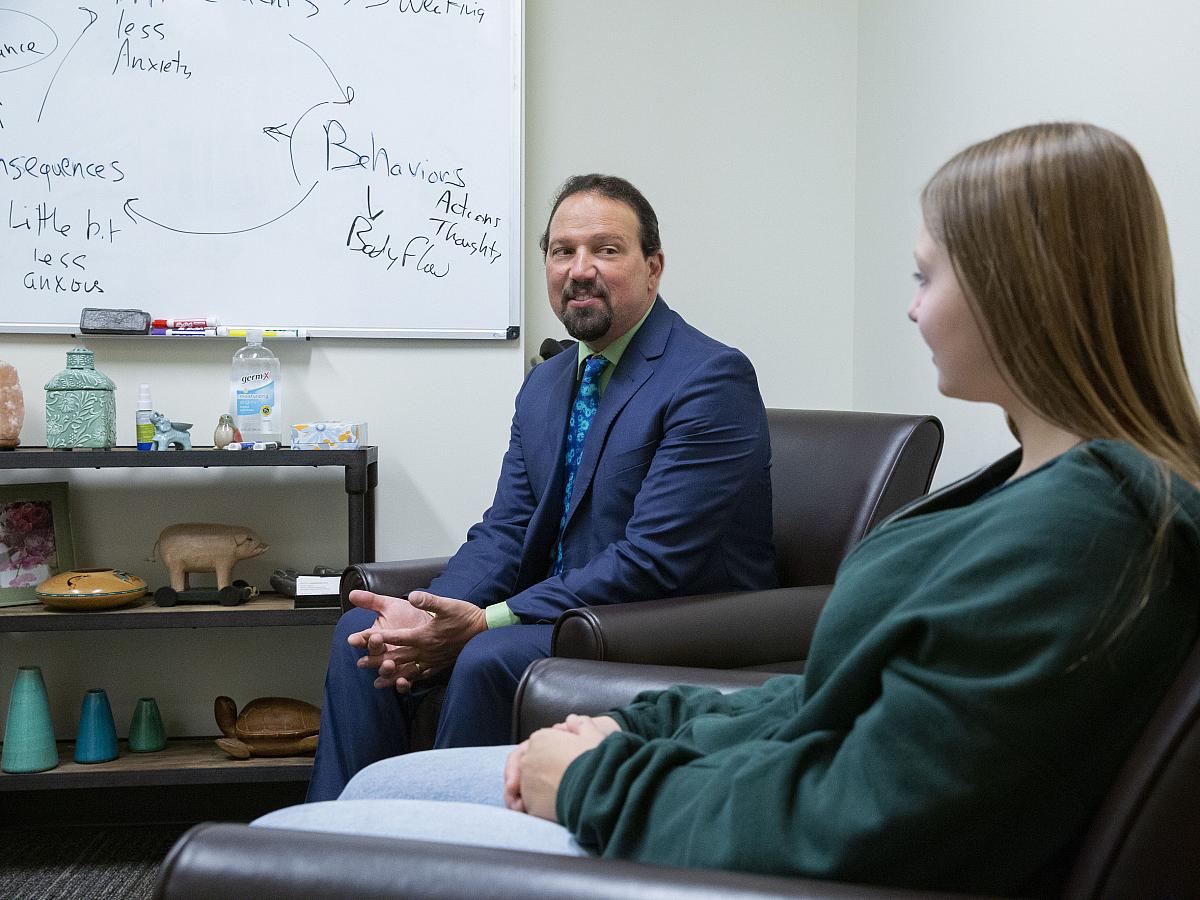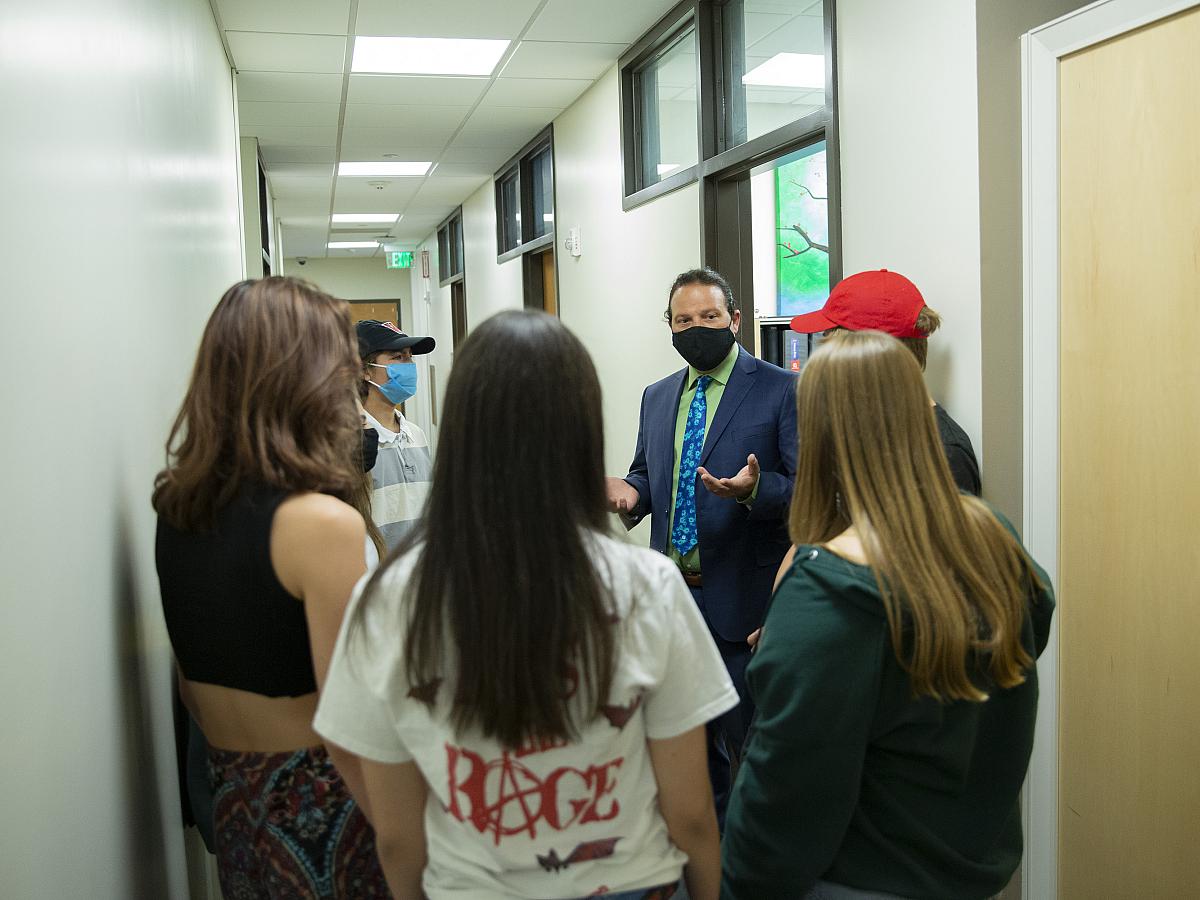
MEND2 Laboratory
Multifaceted Explorations of the Neurobiology of Depressive Disorders (MEND2)
About Our Research
The MEND2 laboratory uses biopsychosocial tools, including neuroimaging, performance, self-report and other-report, and blood and saliva assays in mood disorders. We use these tools to identify biomarkers to inform precision medicine, including diagnosis, risk, prevention/treatment selection, treatment effectiveness, and course modification.
Contact Us
Call or text: (385) 313-0039
Email: utahmend2lab@gmail.com
Our Clinical Research Studies
Participate in a Study
Interested in participating in a mood disorder study but not sure which one applies to you? Take this quick survey to help us determine what study may be a good fit.
Lab Members
Scott A. Langenecker, PhD
Dr. Langenecker's research and clinical work focuses on the lifespan approach to mood and anxiety disorders, with particular focus on life transitions (e.g., adolescence to adulthood). He is developing and adapting biological and cognitive tools to understand ways to identify and treat individuals with a past history of mood disorders to reduce recurrence, decrease episode length and severity, and to improve functioning and quality of life.
Melinda Westlund Schreiner, PhD
Mindy's research is in the area of affective disorders with a specific focus on non-suicidal self-injury (NSSI) and suicide in adolescents and young adults. She is interested in developing a more nuanced understanding of the neurobiology associated with these behaviors, investigating the neural mechanisms of change associated with treatment, and using this knowledge to optimize treatment outcomes.
Katie's research and clinical work focuses on a developmental cognitive neuroscience approach to mood and common co-occurring disorders. She is a cognitive-behavioral therapist in the lab’s current clinical trial with adolescents. Katie is also completing her dissertation on cognitive, biological, and environmental risk factors for development of depression in adolescents, and hopes to use this work to inform prevention and intervention measures for high-risk youth. She is currently a graduate student at University of Illinois at Chicago. She is completing her dissertation work and practica experiences at the University of Utah and Salt Lake City area.
Becca's research examines the impact of sociocultural factors on mood disorders, with a focus on the effect of sociocultural group identity on social cognition in bipolar disorder and major depression. She is also interested in the cross-cultural validity of diagnostic criteria and psychometric measures. Becca is currently a graduate student at the University of Illinois at Chicago.
Leah's research interests focus on the underlying risk and protective mechanisms in the development of mood disorders. She joined the University of Utah's Clinical Psychology program and MEND2 Lab as a doctoral student in Fall 2019.
Jennica is a Research Associate in the MEND2 lab where she supports with running, maintaining and expanding studies, partnerships and protocols. She conferred a BS from the University of Utah and a Master of Health Science from Johns Hopkins University where she dovetailed her passion for psychology, neuroscience, and public health. Her clinical and research focii are centered on trauma, resilience, and effective intervention adaptation and dissemination for refugees, immigrants and those who have survived war trauma and its sequelae.
Brian is a Research Associate in the MEND2 Lab, who graduated from Brigham Young University with a B.S. in Psychology and a minor in Spanish. He is involved in running and maintaining multiple lab studies. He is primarily interested in suicide prevention, symptomology of mood disorders, and therapeutic treatment outcomes. Brian plans to pursue a Ph.D. in Clinical Psychology, with the long-term goal of working with the Latinx community and understanding barriers to mental health treatment.
Daniel is a Research Associate in the MEND2 Lab where he is involved in running and maintaining all lab studies. He graduated from Vanderbilt University with a B.A. in Neuroscience and Psychology. Daniel is interested in understanding the neurological basis of therapeutic cognitive processes including acceptance, mindfulness, and self-compassion. He hopes this research can help healthy mental health practices become more accessible to the general public. Daniel plans on pursuing a graduate degree after gaining more hands-on clinical experience at MEND2.
Somi received her B.S. in Psychology at the University of Utah in 2020 and is currently working as a research assistant/analyst in the Department of Psychiatry. As someone with a great interest and passion in understanding the brain and mental health, she hopes to continue to gain hands-on experiences in clinical research and pursue a PhD in Clinical Psychology in the future.
Myah is Research Associate in the MEND2 Lab where she is involved in running and maintaining all lab studies. She graduated from the University of Wisconsin-Milwaukee with a M.S. in Cognitive and Developmental Science. Myah is interested in prevention science, especially as it relates to development, trauma, and cognitive neuroscience among at-risk youth.
Maci graduated with a BS in Neuroscience from Brigham Young University. Her interest in reward and motivation pathways has driven her to pursue a Ph.D. in Neuroscience at the University of Utah and to join the MEND2 Lab. Her motto is “I study how we work in order to maximize that work!” When she is not studying or in the lab, Maci loves watching and playing sports, reading Harry Potter with her husband, and spending time in the mountains.
Matthew is a Research Associate in the MEND2 lab where he is involved in running and managing data for multiple lab studies. He graduated from the University of Oslo with an MPhil in Cognitive Neuroscience. Matthew is interested in the neurobiological mechanisms of affect, especially in the context of mood disorders.
Anna is a Biomedical Engineering masters’ student at the University of Utah. In the MEND2 lab, she helps with data acquisition, analysis, and management for several studies. Anna is passionate about research into the biological basis of mood changes. She hopes to develop more personalized mental health medicine. Outside of research, Anna loves listening to music and roller skating.
Dr. Kaufman is an Instructor and Psychologist within the Department of Psychiatry at the University of Utah. She received her Ph.D. in Clinical Psychology from the University of Utah. Dr. Kaufman’s program of research focuses on interrupting pathogenic factors that contribute to self-inflicted injury (SII), borderline personality disorder (BPD), and suicide.
Publications
In the News
Interested In Collaborating?
Email Scott Langenecker (s.langenecker@hsc.utah.edu)

















